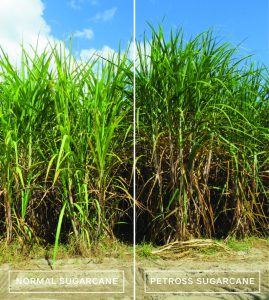The University of Illinois and the University of Florida have been awarded a third round of ARPA-E funding (U.S. Department of Energy’s Advanced Research Projects Agency-Energy) to continue research work on the Plants Engineered To Replace Oil in Sugarcane and Sweet Sorghum (PETROSS) project. The funding is for projects that are focused on developing ultra-productive biomass crops for use in biofuels.
 “Our research project is on a trajectory to produce sugarcane that could give the U.S. an inexhaustible and environmentally friendly oil supply that could satisfy one quarter of the nation’s fuel and provide a renewable source of jet fuel,” said Project Director Stephen Long, Gutgsell Endowed Professor of Crop Sciences and Plant Biology at Illinois. “These crops could be grown in areas of the Southeast that can no longer produce food crops, giving the region a much needed economic boost.”
“Our research project is on a trajectory to produce sugarcane that could give the U.S. an inexhaustible and environmentally friendly oil supply that could satisfy one quarter of the nation’s fuel and provide a renewable source of jet fuel,” said Project Director Stephen Long, Gutgsell Endowed Professor of Crop Sciences and Plant Biology at Illinois. “These crops could be grown in areas of the Southeast that can no longer produce food crops, giving the region a much needed economic boost.”
PETROSS is engineering sugarcane and sorghum to produce 20 percent oil, which equates to 13 times more biodiesel (and six time more profit) per acre than an acre of soybeans. Naturally these crops produce just 0.05 percent oil, which is not enough to convert to biodiesel. PETROSS has now produced a cane that accumulates 13 percent oil by dry weight. With just 5 percent oil that can be turned into biodiesel, PETROSS sugarcane is 4.5 times more profitable than soybeans per acre.
The research team is continuing to work on yield increases as well as improving cold tolerance to expand the growing region of sugarcane in the U.S. To increase yields, PETROSS is focusing on photosynthesis, which turns the sun’s energy into biomass for biofuel production. An improvement in photosynthesis directly correlates with an increase in yield. PETROSS has developed a plant that is 20 percent more efficient (producing 20 percent more biomass) under normal conditions. Under cooler conditions, PETROSS cane is nearly 50 percent more efficient.

